I’m gonna be brutally honest: it’s like some bloggers who publish guides on how to save money for travel aren’t even trying.
They tell you to cancel your landline as if that’s even a thing these days. They say, “stop ordering $5 coffees every day!” as if that’s something everyone does on the regular and that’s the only thing holding you back from travel. “5 x 365 is almost $2,000, enough to travel for four months in Vietnam!”
They parrot some ridiculously blown-up figure at you, assuming it’s a necessary expense that every “real person” faces, when in reality, only a small percentage of people spend that amount on coffee to begin with. And, let’s be real — those people aren’t the kind of people who really need to scrimp and save money to travel to begin with.
Well, guess what? I saved up enough money to quit my job to travel the world for the next four years or so, and I didn’t give up coffee or my social life to do it. I wasn’t an investment banker. No rich relative died and left me a fortune (though I’m candid that I’ve been afforded plenty of opportunity and privilege).
Nope. I was just a public school teacher. What did I do? I tracked my income and spendings, prioritized my spendings, identified non-negotiables and things I could do without, developed alternate income streams, and was a little bit creative when it came to planning things with my friends.
And the fact I’m most proud of? I did this all while living, traveling as much as I could, and working full-time as a teacher living in one of the most expensive cities in the world: NYC.
Not including my untapped retirement fund, I was able to save money for travel — approximately $50,000 over the course of five somewhat frugal years — while still affording to travel to 17 countries in that time alone! Here’s how:

Table of Contents
The Basics & Travel Hacking 101
1. Get rid of all “bad debt.” First and foremost – even before developing savings, work towards getting rid of all bad debt, like high-interest student loans and all credit card debt. If you have a credit card with high interest, look into doing a free or low-cost balance transfer to a 0% APR credit card as soon as possible and work your butt off at paying it off within the time limit. You don’t necessarily have to pay off your student loans before you go travel – just work to chip away any high-interest private loans and make sure you factor in the cost of low-interest student loans into your monthly budget.
2. Reframe the way you think about money. Think about the kind of travel you want. Really think about it and make it concrete. Research the average cost of accommodation, food, activities, etc. in the country you’re dreaming of visiting. Or look at the average cost of one day backpacking that country. The way I think about it is this: every $25 is another day of freedom on the road. Would you rather buy some new clothes at H&M for $100, or would you rather have another 4 days of backpacking in Southeast Asia? Easy for me to say!
3. Set savings goals. It’s really hard to save money for traveling unless you know exactly what you want. As a benchmark, $1,000 per month of backpacking in Southeast Asia, Eastern Europe, Central America, or certain parts of South America is sufficient with — ideally — another $1,000-2,000 as a safety buffer. So, as an example, about $8,000 for a six-month trip. Subtract your rent and utilities from your paycheck and see what’s left. Set goals for your food budget and your everything else budget, and then see what your potential travel savings could be. For example, in my last year as a teacher in NYC, I took home $3,200 per month. I paid $1,100 for rent. That gave me $2,100 to work with, and I was usually able to save about $1,500 per month, which gave me $600 per month to spend on food and extras — way more than sufficient!

4. Start a travel savings account. Personally, I like Barclays because they give you a 1% interest rate, which is better than most banks. When I was earning a regular paycheck, I kept $1,000 in my checking account at all times and transferred everything above that over to my travel savings account every payday. I don’t recommend setting up automatic payments, as you could be hit with hefty overdraft fees if you mistime things. Do it yourself and feel a sense of pride every time you put money in. Rockstar!
5. Quit cash as much as possible. A lot of people advocate withdrawing a certain amount of cash per week and sticking to that and only that. I totally disagree with this method for two reasons: 1) you lose the ability to earn points with a credit card, which can add up to free vacations and 2) it’s way harder to track your spending. Cash just disappears in my wallet. At least when I use a card, I can track where all my money goes and make adjustments as needed.
6. Use Mint to set a budget and stick to it. Mint is a free service connects to your bank accounts and credit cards and automatically tracks your spending. I found that you do have to “train” Mint a little at first – it doesn’t always get your spending categories quite right at first. However, once you get used to it, it’s an amazing tool to see where your money goes!
7. Make credit cards work for you by opening rewards cards. One mega important caveat: only open rewards credit cards if you have the self-control to not go into debt.
Any “savings” will be offset by the massive interest credit card companies charge — not what you’re aiming for!
If you’re a responsible spender, some of my favorite cards are the Chase Sapphire Reserve, Chase Sapphire Preferred, Southwest (especially if you learn to take advantage of their Southwest Companion Pass trick), American Airlines, United, Delta AmEx, and Alaska Airlines.
I haven’t paid more than $400 roundtrip for a plane ticket in 3 years — and I’ve visited over 20 countries in that time, as far-flung as Singapore, Sweden, and Serbia.
Note: this is definitely something Americans have an advantage on. For advice specific to UK/European citizens, check out the bottom where the lovely Dani from Live in 10 Countries offers more helpful advice.

8. Do online shopping using portals to maximize points. Before you do any shopping — online or otherwise — check out Cash Back Monitor. They do a great job tracking shopping portals for excellent points deals. You can get up to 15x or even 18x the amount of points sometimes! As an example, at the time of writing this, Sephora gives 15x points through the United portal. So your $50 purchase could give you 750 points towards travel (in the British Airways points program, 4500 points is enough for a ticket within 650 miles!) Just don’t go crazy buying things you wouldn’t! Note: You don’t have to have the credit card of the portal to shop there – just create an account. For example, you can shop through the United portal to gain United miles despite not having a United or points-earning credit card. This should work regardless of your country of residence but of course, shipping is something to consider here.
9. Or use cash back portals like eBates. If you’re not into travel hacking and credit card points, opt for cold hard cash back instead! eBates usually has the best offers, but again, trusty Cash Back Monitor will tell you what the best deal is.
10. Eliminate ATM and banking fees by switching to Schwab. You don’t need to be an investor to have an account with Schwab. Their debit card has no monthly fee, no minimum funding, no foreign conversion fees, and no ATM fees whether you’re at home or abroad. Note: I don’t think non-Americans can take advantage of Schwab, but other countries often have similar no-fee cards. Do some research!

11. Immediately deposit any unexpected cash. Got a tax refund? Put it in savings. An extra generous birthday gift? Savings. If you didn’t expect it, you don’t need it — put it away before you’re tempted by something shiny. When I received my Americorps Award, I put the whole thing in savings instantly. A credentialed income tax preparer with TurboTax Live online can help you determine your tax refund from your residence, whether it’s Dallas, Chicago, San Francisco, or wherever you call home!
12. Don’t forget about change! As a middle-class American, our coins often seem valueless, especially compared to the UK, when the highest coin value typically used is worth almost $3 USD! Compared that to our quarter and it’s easy to see why many Americans get complacent with their change. Don’t! Have a set place for your money. I put my change in a mason jar every so often. Eventually, I took it to TD Bank and changed it into cash before I left for my trip and was nearly $50 richer — that’s two days of backpacking!
Save Money on Transportation
13. If you have a car – sell it right now! Car insurance, gas, maintenance, parking…. owning a car costs a fortune. Your car is worth less and less each day. If it’s at all possible, sell your car and make the switch over to public transit or riding a bike.
14. Opt for biking over public transit. Once you put in the initial investment into a bike (expect to spend about $300 on a decent used bike and the things you need, like a lock, lights, helmet, etc.), you can save so much money that you can put towards travel. I biked for four years in NYC, which is not the most bike-friendly place. Every year I saved nearly $1,400 on subway costs! Granted, I’d take the train on terrible weather days.
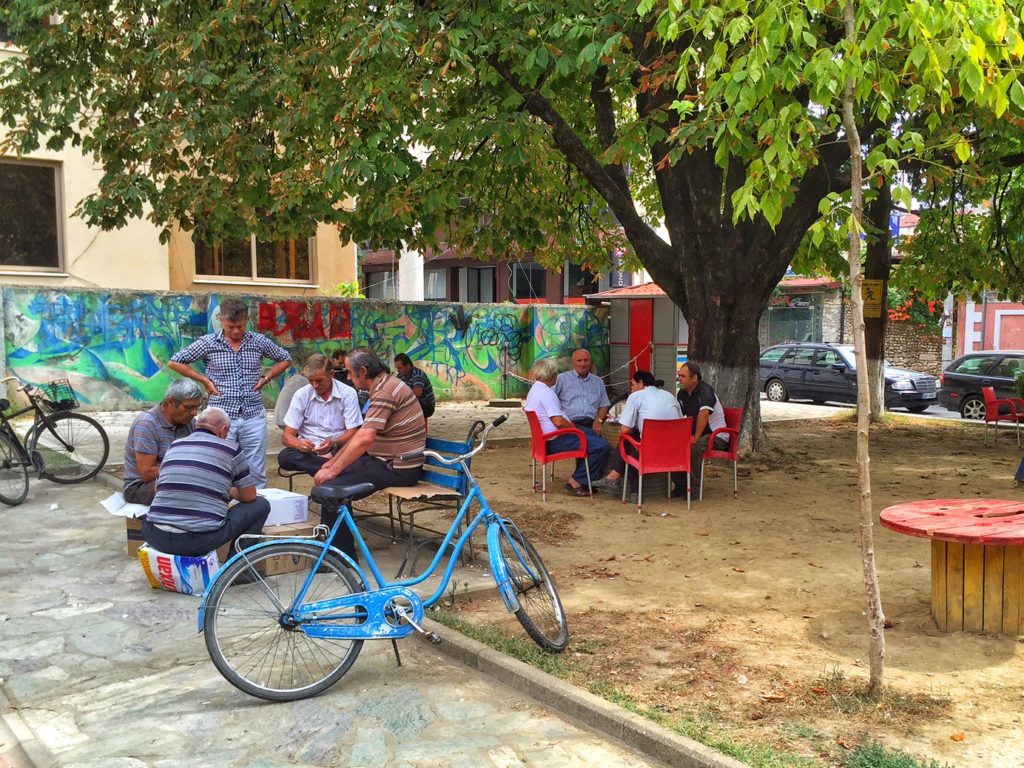
15. Quit calling cabs! This is another great thing about riding a bike – since you have to get your bike home at the end of each night out, you’re less likely to get lazy thinking of a long commute home and order a cab or Uber. Just be careful not to get too drunk if your bike is your ride home – but if you’re saving money to travel, you shouldn’t be spending too much on alcohol anyway.
16. Think outside the train/plane for inter-city travel. If you want to get out of town to visit friends or do a mini-trip while you’re saving, be sure you get a good deal! Rome2Rio does a great job at aggregating the many different methods of transport and telling you the best outcome. Trains and planes are convenient but often costly. Look into buses, ride shares (BlaBlaCar is amazing if you’re based in Europe), and even car rental.
Budget Wisely on Food & Drink
17. Cook for yourself for nearly all meals. This is the biggest way you can save money to travel the world. There are lots of great food blogs out there, but a lot of them focus on showiness and inventiveness, which can often require expensive ingredients. I love Budget Bytes for being transparent about food costs and trying to create delicious recipes that are affordable for all.
18. Bring lunch to work. Eating lunch out can be extremely expensive – and disappointing – especially if you work in a huge metro area like NYC or SF. Bringing lunch to work – whether it’s a purchased frozen meal, leftovers, or a few snacks you’ve thrown together – add up to huge savings on the daily.

19. Stock up on budget food staples to make you more likely to cook. One of my biggest stumbling blocks when it comes to cooking for myself is going to the grocery store. That’s why I stocked up on things that have a long shelf life. For example: canned beans, canned tuna, canned tomatoes, jarred salsa, brown rice, jasmine rice, brown and red lentils, frozen spinach, frozen chicken…. If you have these things on hand – plus necessities like onion, garlic, and olive oil – a good cheap meal is never far away.
20. Reduce food waste. Learn how to properly store your herbs to save tons of money on groceries. Chop your fruits and veggies and freeze them if you’re not going to use them in time. Save chicken bones, cheese rinds, and veggie scraps to make your own stock. Here are some other tips for reducing food waste!
21. Eat more meatless meals. I’m not a vegetarian, but I love a good meatless meal. Unless you go crazy buying vegan coconut oil hamburger buns and quinoa-tempeh-seitan burgers, you’ll spend way less than you do on an average meat-filled meal. Here’s some inspiration to get you started.
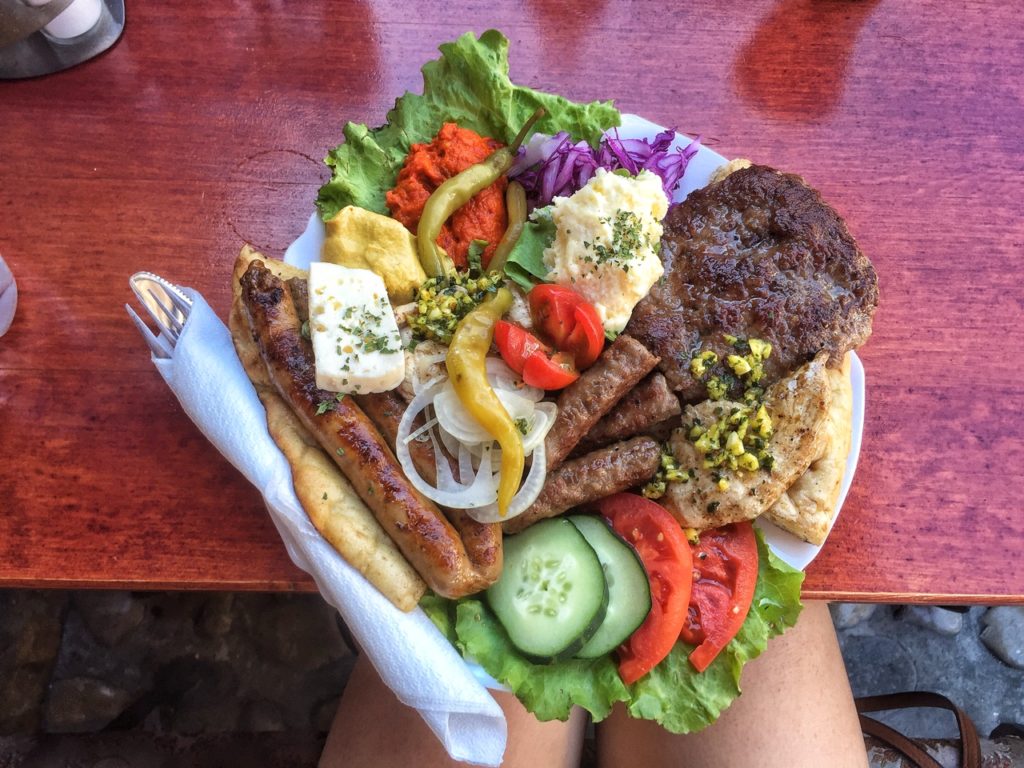
22. Make extra food and freeze leftovers. I don’t know about you, but I have trouble eating the same thing day in and day out. So I make a decent size batch of food, have one portion for dinner and another for lunch the next day, then freeze all the rest. Virtually any stewy or soupy meal will freeze perfectly, and many others will freeze well too! Be sure to label your food so you don’t forget what it is you have!
23. Shop at budget and/or ethnic specialty grocery stores. I love places like Trader Joe’s (just skip their overpriced and under-quality produce) when it comes to cheap pantry staples. If you live near an Aldi, Walmart, Lidl, etc., make that your first stop for groceries. I also like doing my shopping at ethnic markets such as Indian grocery stores where you can save a fortune on spices and dry bulk goods.
24. Keep a few frozen meals on hand to stave off ordering out. If you live in a city that has Seamless, you likely know it’s kind of the best thing ever. But it can really add up. Have some frozen meals in the fridge – either home-cooked or store bought – that you can just heat up when you’re exhausted but need to eat. You can save a lot of money this way! I love Amy’s frozen meals and some Trader Joe’s meals (their Indian food, enchiladas, and gyozas are all delicious!). Sure, these aren’t as cheap as home cooking, but it’s wayyyy cheaper than take-out!

25. Shop the sales flyer. I would always scope out my weekly circular letting me know of deals and use this to stock up on the cheapest stuff or plan my meals around items that were offering good value that week. Just make sure you don’t buy a bunch of perishables you can’t use. Canned goods, dried noodles, meat you can freeze… these are all great.
26. Get into couponing. OMG, have you ever watched Extreme Couponing? It’s insane what these people can do! I thought about getting into couponing because I love gaming the system but binders are my mortal enemy so I deferred. If you’re willing to invest time in learning the system, you can seriously save money for travel — up to thousands and thousands of dollars. Check out this awesome guide here!
27. Quit buying bottled water. Seriously, my biggest pet peeve is people who drink bottled water in places with perfectly safe tap water because they “don’t like the taste of tap water.” Dude, be grateful you can turn on your faucet, drink some water, and not get dysentery like those poor fucks on the Oregon Trail. If your palate is really so sensitive, try a water filter. And if you live in a place where you actually don’t have access to clean water, consider investing in a Steripen!
28. Start a herb garden. Herbs make a meal delicious and more colorful, and they’re cheap and renewable! Start a mini herb garden and you’ll always have fresh herbs at hand. Herbs that you need just a little of, such as rosemary, mint, sage, thyme, chives, and tarragon, are especially worthwhile. Cheaper herbs that you use more of – like cilantro, parsley, and scallions – you may be better off buying at the supermarket.

29. Maximize your takeout. When ordering takeout, look for combinations and lunch specials to maximize your meals. I have to admit that I ordered Seamless quite a bit when living in NYC. I tried to offset the cost by ordering a meal that I could easily split into two or more portions. If lunch specials or combinations are available, go for it! You can easily make some extra rice or noodles and stretch a meal out into two or even three servings.
30. Invest in a slow cooker. For a small amount of money, you can have this immensely practical kitchen tool that will be your savior during busy days. Here are some incredible recipes for slow cooker meals, including per meal budget breakdowns! If you want something a touch fancier, try the Insta Pot! It’s amazing for cooking grains, rice, and other things that don’t do so well in a normal crockpot. I nearly cried when I subsequently sold it on Craigslist.
31. Snack on whole foods, not junk. Junk food is terrible for you and never fully satisfies you, and it’s expensive as hell to boot. Stick to nutrient-rich snacks like cheese, nuts, apples, and (my other mortal enemy) bananas and you’ll save hundreds per year on snack foods. An especially terrible deal are things like Kind bars and energy bars — they sound healthy and filling, but in reality, they’re just expensive AF!
32. Ignore health food fads. I will never understand why the hell a green juice costs upwards of $5. Isn’t it just like spinach and ginger and kale, none of which are actually expensive? Eating healthy is simple — don’t make it stressful. Lower your carb intake; increase your vegetable and protein intake. Done. You don’t need to eat parmesan kale chips and chia seed and goji berry puddings to be healthy. Just eat real, whole foods. Simple.
33. Scan your fridge, pantry, and freezer. Write down everything you have so you can more clearly see connections between ingredients that go together. Make an effort to use up what you have or to orient future recipes around ingredients you already have. Only buy fresh ingredients that augment what you already have.
34. Join a food co-op or CSA. When I lived in NYC, I was a member of the famous/infamous Park Slope Food Coop. For a small joining fee ($25 + a refundable $100 investment I received upon leaving) and a 2 hour and 45-minute work commitment every 4 weeks, I had access to supremely discounted organic food and veggies. If you don’t have a local co-op, try joining a CSA for fresh veggies. It’s really fun to orient the way you cook around what’s fresh, affordable, and in season. You can actually save a ton of money by cooking this way!
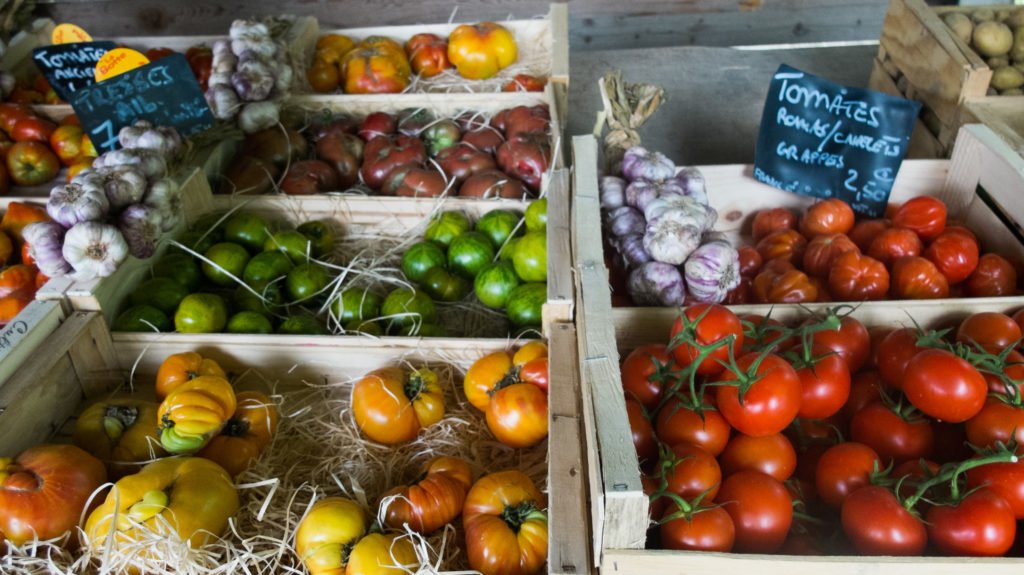
35. Create a list before you grocery shop. Don’t go in hungry with guns blazing. Meal plan using Pinterest, your favorite food blogs, and weekly sales circulars before going into the grocery store. Stick to your list and nothing else!
36. Cook your own staples. Buying the book Artisan Bread in 5 Minutes a Day changed my life. As did reading the guide to cooking your own beans from scratch on Budget Bytes. Assuming you make two loaves of bread a week that would normally cost $4 each at pennies per loaf and cook your own beans, you can save money for travel at the tune of up to $10 per week, or $500 per year, just off these two simple pantry staples alone! Crazy, right?
mo
37. Repurpose those leftovers. I personally get so sick of eating thing time and time again. If I make something delicious like carnitas, I can reuse them in a ton of different ways and not get sick of eating them repeatedly.
Save Money for Travel by Socializing Smartly
38. When going out to dinner with friends, order wisely. I love going out to dinner, so I’d never realistically tell someone to cut out dining out entirely. When you do go out, stick to water or just one drink. Skip the appetizer or salad in lieu of a hearty-sounding entree. This can slash your dinner bill in half easily.
39. Take initiative planning outings. Saving money on outings doesn’t have to mean never going out. It means that you have to be a little more creative and take more initiative when planning things with your friends. Get them excited about something free or cheap, like a hike, a donation-based yoga class, or a picnic in the park.

40. Host friends in rather than go out. Have some friends over for a potluck dinner, or ask each friend to bring a bottle of wine and host a wine tasting party at home. Huge savings compared to going out to eat or to a bar and honestly, a lot more fun.
41. When you’re tempted to splurge on something pricy, look up free events in your city instead. Just google “free in + [your city]” for an idea of a bunch of awesome things to do for free.
42. Be willing to say no when something really doesn’t fit your budget. If you’re absolutely dreading what you know will be a budget-busting group birthday dinner… just say no! Offer to take that friend out for a drink later that week. Same goes for weekend trips with friends or other things that just aren’t in your budget. By all means, go if you’re excited about it! But if you’re dreading spending the money, you won’t actually enjoy it, so you might as well save money for traveling.
43. When you do go out, do it wisely. Google your city + cheap eats. Also, going out for ethnic food is always cheaper than hipster “New American” style places. I’d rather pay $7 for a huge steaming bowl of pho than $12 for whatever the hell an acai bowl is… thanks!
44. Channel your college days. Remember pre-gaming? No, I don’t either, because I was always too blacked out afterward. That said, if you’re on a strict budget, have a drink or two before meeting up at a bar. You’ll be able to order only one or two drinks and still feel like you’ve had a solid night out on the town.
45. Seek out BYOB restaurants. At least in the US, alcohol costs are often hugely overinflated at restaurants. Find a place where you can bring your own booze and you’ll drunkenly laugh your way to the bank.
46. When going out drinking, stick to beer (if you like it). Cocktails are overpriced and disappear wayyy too quickly. A nice draft beer will set you back less and take you much longer to drink, keeping your bar tab low and your hands full. I kept my nights out on the town in NYC to less than $15 or $20 on most nights by following this rule of thumb — and biking rather than taking cabs.

47. Happy hour is the best hour. As a former teacher, I hold the happy hour sacred. When making plans with your friends, try to steer them towards places with decent happy hour specials. Many “happy hours” are actually quite a few hours long and don’t just cater to the day-drinking alcoholics. One of my favorites in NYC offered $3 draft beers until 9 PM.
48. Change up your coffee consumption habits. I know I railed about this earlier and I’m not trying to be a hypocrite! Listen – I’m no monster. I’m not going to tell you to cut out coffee. That would be wrong – immoral, even. But small changes here make a difference. Change your $5 soy cappuccino from Starbucks to a $2 filter coffee from a local cafe. If you normally drink simple coffee from a cafe, switch to making your own. I love the Aeropress, which is an awesome travel coffee maker that also works great at home. You’ll bring your coffee costs down to almost nil. Or learn how to make your own cold brew!
49. Reduce your short-term vacation spending. If you’re saving for a big trip, it’s easy to get suckered into smaller-sounding trips along the way. While there’s nothing wrong with doing day trips and weekend trips, make sure you’re spending smart and think of the per-day total cost when planning.
50. Opt out of Christmas. Communicate to others that you don’t wish to receive any gifts for Christmas. Make a donation to a charity of your choice in the name of your relatives and loved ones rather than buying unnecessary gifts. Doctors Without Borders, the ACLU, Planned Parenthood, and the Southern Poverty Law Center all do fantastic work. Or, if your loved one will be truly distraught that they didn’t personally benefit from Christmas, offer them a “coupon” for a massage, babysitting, or dinner in one night.

Lifestyle Changes: Reduce, Reuse, Recycle
51. Buy and read The Life-Changing Magic of Tidying Up. I know — I’m really telling you to buy something on a post about saving money? Seriously, this book will pay you back dividends. It’s just the motivation I needed to finally break the cycle of obtaining, attempting to store, and eventually trashing shit. Instead of spending money on worthless crap, I focused on how to save money for travel. Besides, if you eBay, consign, or Craigslist the stuff that no longer “sparks joy,” you’ll more than recoup the cost of this book. Trust me.
52. Don’t get tempted by big sales. I know, this is a bit counterintuitive. Sales = savings, right? Wrong! The truth is, most Black Friday “deals” are a huge scam – they artificially inflate the prices beforehand just to “slash” them right before holiday madness. Don’t ever buy anything just because it’s on sale. Now, if there’s something you truly needed before it was on sale, and now it is, by all means, get it and get it now! But don’t buy things just because it’s on discount.
53. Reduce your living costs. If you live alone, consider living with roommates while you save up. Or become a host on Airbnb if you have an extra bedroom you’re not using. If you’re planning on quitting your job to travel, you can hang onto a ton of money if you have parents who will let you live at home while you save money for travels. When I was saving up to quit, my lease ended on June 1st but I had to work until the end of the school year, near the end of June. A few different friends let me crash on their couch for week or two each. That alone saved me over $1,000 (thanks, guys <3)! Obviously, don’t overstay your welcome, but don’t be afraid to ask for a little help.

54. Reduce your utility bills. Make it a game to see how much you can reduce your utility usage. Make sure you switch off lights when not in use. Invest in a cheap surge protector and use that to easily “unplug” all electronics (except your fridge, obviously) whenever you’re not home. TVs and other things use power even when not on! Take shorter or cooler showers. Run your dishwasher or washing machine less. Line dry if possible. Bundle up in winter rather than blasting the heater as high and reduce AC usage in lieu of a fan when possible.
55. Cancel your cable. I’m sure you already knew this, but cable is pointless in this day and age. I’m not going to even have a separate reason on my list to cancel your landline because I know that no one under the age of 40 has one anymore, but if you do… good god, get with the 21st century, man, and save that money for travel!
56. Go even further and cancel your Netflix, HBO Go, Hulu, and/or Amazon Prime. There are lots of great ways you can access great television without paying for it. My favorite site currently is shush.se which runs off of Flash Player and doesn’t have a ton of crappy ads. Or mooch off your parents/friends/exes if that’s your current situation. Which it’s not *shifty eyes*.

57. Consider canceling your phone plan. Switch to a data only plan ($20 a month offered through T-Mobile – ask at a store) or just use your phone with wifi for free. You don’t really need texts and phone calls, especially if you have an iPhone (for iMessage and Facetime) or free texting and calling apps like WhatsApp, Facebook Messenger, or Skype. If your phone bill is $80 a month and you switch to a $20 a month data-only plan, you can save over $700 per year towards traveling!
58. Cancel or downgrade your gym membership. If it’s okay for your mental and physical health, quit the gym. There are so many ways you can exercise that are free. YouTube yoga and pilates videos. Download circuit training workout guides. Go for a run or a swim if you’re by a body of water. Go for a hike. If none of these options sound good to you, consider downgrading to a less expensive gym. When in NYC, I was a member of Blink for $15 a month and I thought it was a great value.
59. Buy used for everything. Buy used clothes – it’s better for the environment, for workers’ rights, and for your wallet. Plus, thrifting is so much fun… it’s like a treasure hunt! You can also “shop for free” at consignment stores by bringing in unwanted clothes and getting paid in vouchers to shop at the store. Used books are also a great deal. If you need some new furniture, buy it used and save that money for travel instead.

60. Implement spend-free weekends. Weekends can be a huge drain on your budget – but not with the ingenious idea from Leah at The Sweetest Way. Get inspired by her spend-free weekend ideas and try one of your own!
61. Lower your beauty costs. Ladies, let me tell you – capitalism thrives off your insecurity. Who gives a shit about the size of your pores when you’re on a beautiful deserted beach in Albania? I was at Sephora the other day and I literally saw a pre-mask primer. A spray that you don’t need that you put on before you put on a mask that you don’t need for skin problems some men in suits in corporate America invented. Ladies! Stop feeding into this! I’m not saying you have to go make-up free — god knows you’ll have to tear my Laura Mercier oil-free tinted moisturizer from my cold dead hands — seriously consider reducing your beauty costs. Quit coloring your hair or getting lasered or getting weekly manicures. Quit paying the patriarchy tax!
62. If you must splurge on beauty, use Groupon wisely. I’m the kind of girl who can go six months without a haircut and years without a manicure… but I’m almost irritatingly low maintenance (in high school, my friends once had to tackle me to the ground to brush out a knot in my absurdly long hair – and that is not an exaggeration). If you’re the kind of girl who likes waxes and facials, no judgment — just chase that deal, girl. Groupon always has great deals. Not that you need that shit, but it’s out there.
63. Do your own nails. I’ve never understood people who regularly pay $30+ weekly to get their nails done. It’s not that hard! Do your own nails or, as I’ve done, embrace the au natural look.

64. Get your hair cut at beauty schools. Can someone please tell me why women’s haircuts are so goddamn expensive? Back in NYC, $65 was the going rate for an average haircut. Uh, no thank you, that’s like a once a year expense for me. I got my hair cut at beauty schools for free or cheap constantly! Paul Mitchell, Aveda, Bumble & Bumble, etc. as well as local salons will almost all offer free or reduced price haircuts if you’re willing to have a student cut your hair. Afraid? Don’t be. They work slowly and usually with assistance from a senior stylist, and no one has ever jacked up my hair.
65. Take advantage of your local library. I’m a member of Brooklyn Public Library and it’s amazing – so many books available both in print and, my personal favorite, as eBooks! Your library likely has eBooks for rental as well as books in print, so take advantage and quit paying a fortune to Amazon. Many libraries give out free museum passes to local museums, too!
66. Implement a “think it through” period before you buy new crap. Before I turned 18, I made myself a rule: no tattoos unless I knew what I wanted, thought it over for two years, and still wanted it. Nearly ten years later, my skin is still a virgin, because I’m fickle AF and can never commit to anything, let alone ink permanently inside my largest organ. I do the same with stuff, but with a more realistic two week waiting period. If I still want it two weeks later, it’s probably for real. This doesn’t apply to thrift/consignment shopping. If you think that shit’s gonna be there two weeks later, you’re a fool.

67. Reduce movies out or take advantage of cheap matinees or days. I do love going to the movies… but good god, is it ever expensive. Find movies streaming online — there are both legal and illegal ways. *cough* invest in a VPN *cough*. Or see a matinee or see if there’s a special day of the week at your local theatre. For my New Yorkers out there, Cobble Hill Cinema has $9 movies until 5PM every weekday as well as all day Tuesday and Thursday. And I’m not above bringing my own popcorn and other goodies.
68. Use the Wikibuy plugin for maximum savings. Think Amazon is always the best bet? Think again. Download the Wikibuy plugin for Chrome and it’ll automatically check other websites, including eBay, factor in add-ons like shipping and taxes, and tell you how much you can save.
69. Reduce or quit smoking and drinking. If you’re a smoker, please please please switch to an e-cig (which is not perfect but is much cheaper and, as far as current literature shows, safer) or make steps towards quitting completely. You’ll save thousands in immediate costs, not to mention potential health care costs down the line. I used to smoke two or three packs a week in NYC, which at $12 a pack cost me over $100 a month, or $1,200 per year! Jesus, it hurts to write that. I also used to spend even more than that on weed — another huge money drain. I completely quit smoking both cigarettes and weed and now stick to about 2 drinks per night. The savings and the health gains are huge for me.

70. Stop upgrading. Capitalism teaches us to covet. We often forget what we actually need. You don’t need the newest iPhone or iPad or camera. Learn to make do with what you have and replace things when they break or get lost, rather than whenever something new comes out.
71. Subscribe to Secret Flying and Travel Pirates. You never know when a good travel deal will surface – prepare for error fares and major savings by following these two websites on Facebook.
72. Follow personal finance blogs. The Penny Hoarder is one of my favorites. They have so much practical advice that spans so many different topics.
73. Be grateful. OK, this may sound a bit ridiculous. As an admitted forced-positivity-phobe — I find it trite —I know this seems seriously cheesy. But as someone who battles depression and anxiety, I find it immensely helpful to list things I’m grateful for on a regular basis — either mentally or physically. It also has the added benefit of adding a sense of abundance to my life. It’s often easy to feel like your sadness or dissatisfaction has a material root.
74. Embrace meditation and yoga. A lot of my unintended expenditures come from an unsettled mind. Doing yoga by following videos on YouTube or meditation body scans allows me a more nuanced perspective of my mentality, which keeps me from seeking monetary solutions to psychological and spiritual problems.
75. Find free sources of knowledge. Rather than spend a ton of money on Rosetta Stone, try Duolingo. Trawl through Wikipedia instead of splurging on hardcover books. Watch a documentary online. Listen to a podcast. This is the information age — with enough creativity, virtually everything is (literally) at our fingertips!

76. Discover free ways to entertain yourself. Hiking, taking a photo walk, taking a bubble bath, listening to an amazing playlist on Spotify, discovering a new podcast, watching an enthralling movie… these activities can all be free or virtually free.
77. Try a “No Spend November” any month of the year! I absolutely love this challenge idea: freeze all non-essential spending for 30 whole days. That is, spend nothing at all aside from groceries, transit, and rent. Think you can handle it?
78. Skip the “pink tax” on razors and join the Dollar Shave Club. Even generic blades at Target cost almost $20 for four razor heads. Enter the Dollar Shave Club! You can get 5 2-blade cartridges per month for $3 including shipping and handling, or 4 4-blade cartridges per month for $6 with shipping and handling included (the first month is $1 no matter what you get!). That’s a savings of $14 to $17 per month, up to $200 per year, just on razors alone!
79. Switch to a Diva Cup and save the environment — and your wallet! Did you know the average woman spends about $60 per year on tampons and/or pads? I know that doesn’t sound like a lot, but that $60 can be like, 3 days in paradise!
80. Buy generic on everything. Brand names = brand name prices. Save huge on OTC medications when you buy generic ibuprofen, allergy pills, stomach meds, etc. Generic face and body washes are generally just as good as their brand-name counterparts. Generic food is also a huge cost-saver!

81. Learn to sew and mend your clothing. You can get a sewing kit for extremely cheap (or free from a classy hotel, y’all). If the only thing wrong with your clothes is a missing button or small hole, fix that ish rather than shelling out your cold hard cash on something new that will likely spring a hole in the next few weeks or so.
82. Master the art of the capsule wardrobe. After backpacking in a carry-on for six months spanning warm and cool weather, I learned you really don’t need much to look and feel fresh. Here are my two rules to mastering a minimalist wardrobe: 1) Aim for 3 times the number of tops as bottoms and 2) Aim for solid colors and simple neutral patterns that mix and match well. 12 tops, 2 skirts, 2 pants, and 3 dresses = well over 50 outfits!
83. Make a list of all the amazing free things you can do at home. From listening to podcasts to taking a long bath to calling a friend to watching a movie on your laptop to doing an exercise video on YouTube, there are so many ways to entertain and pamper yourself without spending a dime.

84. Read classic novels rather than what’s new and ~hot~. Did you know most classics are free to read thanks to an expired copyright? Via Amazon, you can read eBooks like Jane Eyre, Moby Dick, Wuthering Heights, Ulysses, and other modern classics for free (sometimes $1) as Kindle editions. While I absolutely love my Kindle Paperwhite and swear by it for travel purposes (it saves me a great deal of time, weight, and money while traveling as I don’t have to seek out costly English-language bookstores), you can download the free Kindle app on your smartphone or tablet and read it there.
86. Wash clothes using cold, not hot, water. I recently learned that 90% of energy use in washing clothes comes from heating the water. Generally speaking, it doesn’t matter if the water is warm or cold — unless you’re dealing with serious oil stains. Change your settings on your washing machine and let the savings roll in.
87. Look into refinancing. I’m no financial expert, but there are ways to reduce your debt burden – whether it be student loan debt, a mortgage, medical debt, etc. Speak with a professional or do some hardcore Googling on how to reduce or change the way you pay down your debt.

88. Download the Honey extension for Chrome. This simple browser extension automatically searches for coupon codes every time you shop. Cha-ching!
89. Shop the free section. Craigslist and Freecycle often have 100% free offerings. If there’s something you’ve been wanting, why not give it a look on one of these sites? You literally have nothing to lose!
90. Buy giftcards for favorite stores. Occasionally (especially around Christmastime) stores will have mega-sales on gift cards. GiftCardGranny is also a great resource! It’s a site where people sell unwanted gift cards to stores you actually may want to shop at. You can save 5%+ on gift cards using this service!
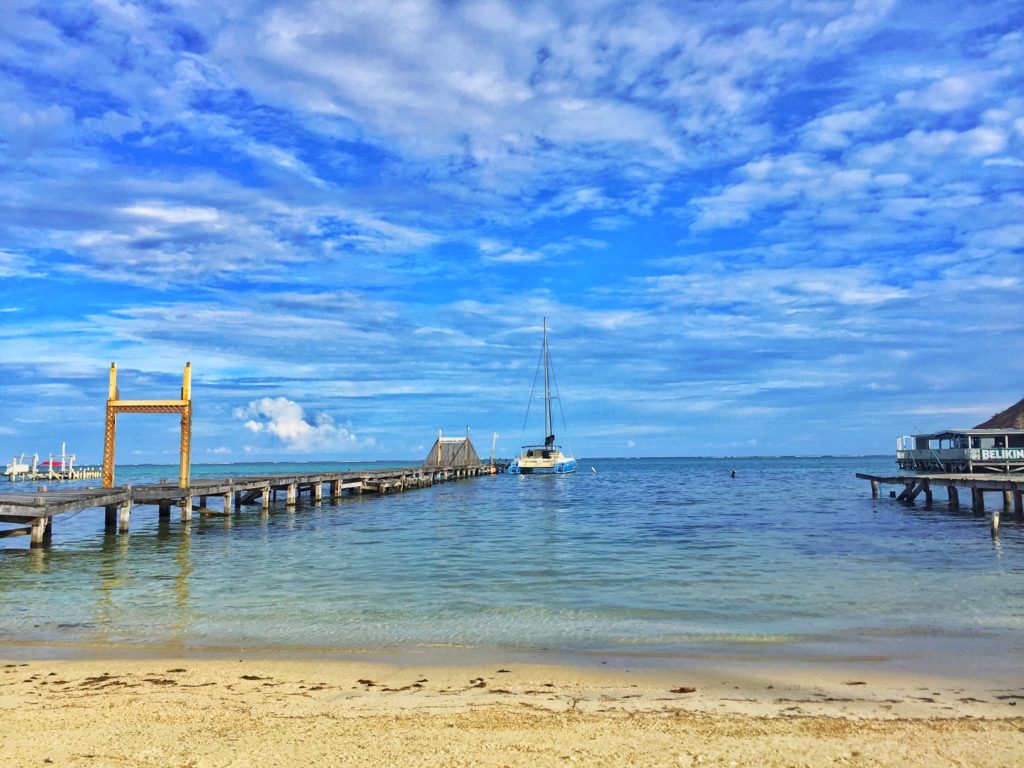
91. Host a clothing swap. Have lots of fashion-forward friends who are also looking to save a buck? Make a Facebook event for a clothing swap, encouraging all your friends to bring a small bag of unwanted clothing items to a meet-up you’re organizing. Everyone can dump their clothes and shop other people’s offerings without spending a dime! It’s a great way to shop for free.
Make Extra Money
92. Auction or consign your old clothes. There are quite a few ways to do this, depending on what you want and how much time you want to invest. To make the most cold hard cash, eBay or a yard/stoop sale is a great but time-consuming option. Another great option is taking your clothing to a consignment store. In New York, I brought my clothes to Beacon’s Closet or Buffalo Exchange (locations countrywide). Crossroads Trading is a great company available in California. They are picky, but it’s hands-off selling, and you can exchange for cash or trade. Even more hands-off? Try ThredUp! They’ll mail you a giant polka dot bag, you load it with unwanted clothing, and they handle shipping, handling & selling your stuff. They took 6 of my items and I got $28 in return. Not the best rate, but if you truly don’t want those clothes, it won’t hurt (they’ll donate all unaccepted items or you can pay for return shipping for unaccepted items). You can also sell clothes on Poshmark individually for a better rate.
93. Sell furniture and odds and ends on Craigslist. I sold a ton of great kitchen stuff on Craigslist as well as virtually all of my furniture while I was moving out. It was easy, instant cash!
94. Become a petsitter. Love animals? DogVacay is a new US-based startup that connects potential petsitters with dog owners. Or, you can advertise the old-fashioned way with flyers, Craigslist, or word of mouth.

95. Become a human-sitter (er, babysitter). Offer your services to colleagues with kids or, if you live in an apartment, post a flyer in your apartment building. It can be a great source of a little extra cash… and it’s all under the table, baby
96. Pick up a side gig. Good at any specific school subject? Try tutoring. Love animals? Become a dog walker! Have a car (despite me urging you to sell it)? Work for Lyft or Uber. Good at assembling IKEA crap? Work for TaskRabbit! Have a lot of followers on social media? Monetize your Instagram!
97. Chase (ha! The puns strike again!) sign-up bonuses at banks. I’ve made over $500 in the last year alone from signing up for checking and savings accounts with Citi and Chase. Check your mail and Doctor of Credit for awesome sign-up bonuses. Keep in mind these bonuses usually only work once, but still – 300 extra bucks ain’t nothing to sneeze at.

98. Make money by doing Fulfillment by Amazon. This isn’t something I personally have tried, but I’ve heard a lot about it. Combine this with a points-earning credit card and double your earnings!
99. Break into freelance travel writing. It’s definitely no get rich quick scheme, but there are plenty of outlets that pay for writing.
100. Look into other work-at-home opportunities. This list is a great place to start!
101. Start working on Upwork. I wrote a comprehensive guide to getting started with freelancing on Upwork. It’s been immensely helpful for me, netting me about $800 a month for 10 hours of work per week. It’s a great way to begin a digital nomad lifestyle!
BONUS: Some tips for European travelers courtesy of Dani, a traveler with a goal to live in 10 countries before she dies and taking everyone with her. Follow along on Twitter @livein10countries
- Make credit cards work for you by opening reward cards: Many cards in the UK pay generous cashback on everyday spending, and leave you with a tidy return, so long as you pay them off in full every month. You could opt for Amex, which offers high rewards but is often not accepted in shops due to the high overheads, or the more modest Flybe credit card — that shop owners won’t look at in disgust — which provides flight vouchers.
- Or use cash back portals like eBates: Start with a major cashback site such as Top Cashback and see if you could get a decent percentage. If not, it’s worth taking a look at Nectar for reward points which can later be converted into money off and Avios for air miles. If all else fails, at least donate the cashback from your online shopping to charity at no cost to you via EasyFundraising.
- Dine for pennies immediately after peak lunch or dinner hour: I’m not talking about spoilt food, but fresh sandwiches or other meals that didn’t get picked during the lunchtime crush and so are likely to end up in landfill the next day. Via the app Too Good To Go you can feast on these morsels for a heavily discounted price as soon as 2 pm hits.
- Make a large shop count– The cheapest places to shop in European cities are usually around the outskirts- here are the homes of enormous super saver stores such as Spain’s Hipermarkets and France’s enormous shopping precincts. Of course, these are a nightmare to access without a car. Pool together with friends and make one large shop in a group car that will net you great bulk buy discounts on staples and feed you for a month.
- Get your culture on, for free: In Paris, almost all museums are free if you are below 25 and a European citizen, even the insanely famous ones. I lived there at 22 and must have seen pretty much every museum, but why not? Many of the Italian hotspots will grant 50% discounts on ticket prices for meeting the same criteria. Bring your European passport and get ready to save!
- See the city’s top attractions without spending a penny: Following on from that point, a huge range of Euro cities boast a ‘White Night’ – translated directly into various languages e.g. ‘Noche en Blanco’ in Madrid. Not as weird as it sounds, this just means an all-night event where museums and public buildings are open for free until the sun rises and the atmosphere is incredible! Whatever city you’re in, this event will save you a ton. In the UK, these are called ‘Light Night’ (just to be difficult, I guess) and occur in Belfast, Nottingham, Leeds, Brighton, and more.
- Take the train without taking out a second mortgage: British trains are cripplingly expensive; always buy your ticket online and get what is labeled the ‘advance’ fare, which is limited to a set number of tickets per train. If you use a site like TheTrainLine you can get cashback on your ticket! On the continent, the best deals are often found by asking in person at a ticket desk, I’ve found.
Enjoy it? Pin it or share it!

Note: This page contains affiliate links! If you purchase something using one of my links, I receive a small commission as a result – at no added cost to you. If you found this resource helpful, it’s a great way to support the site so I can keep producing more content like it.
Allison Green is a former teacher who has been travel blogging since 2016. She has a Masters in Teaching and a B.A. in English and Creative Writing. Her blog posts merge her background as an educator with her experience traveling to 70+ countries to encourage ethical, meaningful travel. She has been a speaker at the World Travel Writers Conference and her writing, photography, and podcasting work has appeared in National Geographic, CNN Arabic, CBC Canada, and Forbes, amongst others. Now a full-time traveler, she has lived in Prague, Sofia, New York City, and the San Francisco Bay Area.
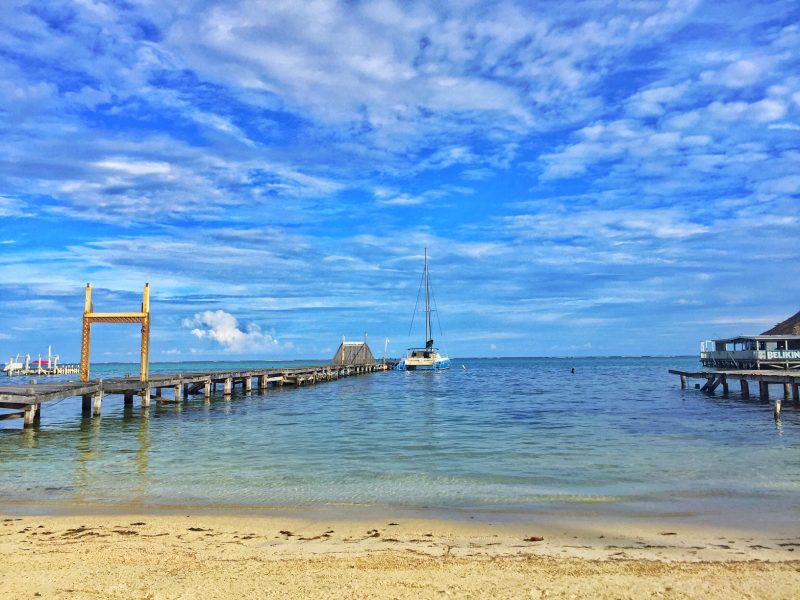
What a comprehensive list! In the end, it all boils down to doing the little things. You can expect to save a lot of money at once over a period of a month or two. It has to happen gradually if you want to be able to afford travel.
I definitely agree, the little things do add up over time. Every $10 you save per week is another $500 per year! It’s easy in our society to let these little things seem necessary but so little really is. What you really need is some food in your stomach, a roof over your head, a way to get from point A to point B, and some good friends along for the ride 🙂
Wow..this is one amazing list that has all the ways to save money . And yet people say they can’t save enough for travel. Although I am quiet frugal but I can still lend a couple of points from here and save further.
I know! I know a lot of people who seem really shocked by how much I manage to travel yet I know they get mani-pedis and blowouts, get brand new cars, drive everywhere, etc… it’s all about priorities!
Wow this is a very extensive guide to saving for travel. It’s very useful for full-time travellers as well to keep the adventure rolling. Great work compiling these tips.
Yes, definitely! As a mostly full-time traveler I think of every dollar spent at home and how I could use it better on the road. It helps! Thanks for the comment!
Intersting post. I will try to follow this I hope it will work. Thank you for sharing
Thank you! I hope it is helpful for you!
Wow, there is certainly a lot of food for thought here and more than a few great tips. I must admit, I’m not very disciplined when it comes to saving money and invariably, I end up hating myself for it when I have to call a trip short because of lack of funds and I will most certainly try to implement some of these ideas in the future. But really, kudos on doing the amount of traveling you have done and sticking so well to being frugal, it is very admirable
Thank you Gareth! Honestly, there are ways in which I’m not that disciplined either – everyone has their vices (mine are wine and food!) But by making travel a priority I managed to indulge my vices in moderation. Hope the tips are helpful for your next trip!
This is such a great an extensive guide! I saw a few things I could really work on, particularly avoiding big sales. Also, I’ll have to check out mint!
That’s so great to hear! Yes, big sales are my huge weakness, especially at LOFT when they have their 50% off everything sales…. I go a bit nuts. But it’s a work in progress!
Oh so many tips! The first tip really is the most important, I saved so much money by getting rid of my debt first! It is so tempting to ignore it and let it build up or worse use cards even more for your travels! I found getting rid of it has helped wth saving the most!
Yes, I totally agree! I’ve always treated my credit cards like debit cards and never buy anything I can’t immediately pay off… but I know so many people who constantly pay 18% on their debt! If you can’t afford it, don’t buy it (obviously exceptions for true emergencies, but those are rare!)
Great advice. Bad debt is a killer – once that’s out of the way, then it is so much easier to start saving seriously. I find also, that once you’ve started saving, and you’ve got say $1000 saved, then its much easier to keep on saving. There seems to be something so much harder when you’re savings are on zero and you can’t seem to get any higher. It’s like the more you have, the more appears! Also – cash does not let you track your spending, as you mentioned. I found it much more difficult dealing in cash because I never really knew where everything was going and I’d inevitably run out too. Great post.
I totally agree! Once I got in the habit of saving money, it really did just start to happen naturally. As soon as saving becomes part of your lifestyle, and not an anomaly, I think it gets way way easier. And 100% oagree n the cash! I’d occasionally take out cash because a lot of restaurants in NYC are cash only (why is this a thing? I hate this!). Every time I took out $40 or $60 suddenly all of it would be gone in a matter of days and I’d have no recollection of what I spent it on. Whereas I actually can really be mindful of how I spend money when I use credit cards. Thanks for commenting!
Yass love these awesome tips and your no BS tone haha. Some super good gems in here, and I appreciate that you actually gave tons of specific examples. Taking plenty of notes for the future!! 😀
Thank you! I’m so glad you found it useful. It’s been a work in progress for a long long time, so it felt so nice to hit publish! Hope it helps you plan an awesome trip in the coming year!!
What a great list. You have some great day to day advice that many can use. Taking your lunch to work, now that is a huge money saver right there! The small things are really big things and can be a game changer to allowing for travel, as you have shown.
Yes, totally agree with your assessment that the small things are the big things – great way to put it! All together it can add up to a lifestyle shift which gives you plenty of extra money for travel 🙂
Love your refreshing and realistic take on saving money- hard to give up the coffee but maybe it could be worth it! Unavoidably, a lot of these wouldn’t apply to non-US savers, wonder if you’d be interested in some European tips? Drop me a line if so- I live on Twitter!- and I could put some together 🙂
I know! I can’t live without it, so I just try to reduce the cost. I’m doing the Whole 30 now and cutting out basically everything fun… grains, sugar, alcohol… my mom told me I should cut out coffee too and I gave her the biggest death stare. You’ll pry coffee from my cold, dead, jittery fingers!!
I know that my list is definitely very Ameri-centric, so I’d absolutely love that! I’ll email you now!
Wow that Ethiopian takeaway looks so good!!! I really wish I could do the points and credit cards travel hacking more easily, but I live in China and get paid Chinese money, so I rarely use my credit card except for big purchases. I really need to learn more about it through once I leave China. I feel like I’m leaving so much money on the table not using rewards perks etc.
I love Ethiopian food! Yeah, us Americans really have it easy when it comes to points and credit card hacking – it’s way harder for people outside of the US. It’s definitely a huge savings – I estimate it saves me $2,000 or so a year.
Really handy list! Inspiring and fun to read. For me I think it’s mostly a shift in mindset and then planning (with the help of this list) and sticking to my plan. I like how most of the tips are transferable to saving up just in general. Wondering if one day I can save to maybe own a home instead of throwing thousands of dollars a year for zero long term investment! Thanks for the tips, Allison!
So glad this was helpful Anneliese! Yeah, for me it was definitely a shift in mindset. The biggest thing for me was thinking of things in “units” rather than “dollars” – like in my example of thinking of a day of backpacking as $25 or $30 really changed how I felt about spending $60 at Forever 21, which I normally wouldn’t have cared about. I think it definitely applies to anything you want to save for, even for the really big things like a home. In fact, the reason I saved up so much was exactly because I was trying to save for a down payment on an apartment in NY. Having concrete things to work towards really helps!
Really loved this post, so many good and realistic tips 🙂
I couldn’t be without my aeropress, with you on that one! I take it away on trips with me all the time so I don’t need to fork out on expensive coffees.
Also the points credit cards are great, I used my BA Amex points to buy our flights to Japan. The came in at £230 each for a return and direct flights.
I’m totally going to suggest the Christmas opt out next year, not only am I in a small flat and don’t need gifts myself but I’ve just forked out a small fortune on presents. When I think of how many days abroad that could have bought me, urgh!
Thanks Bina! I love the Aeropress too, it’s such a great tool and so cheap to boot, especially if you buy the reusable mesh filter (which also saves space). And that’s a sweet deal!
Yeah, I feel the same way on Christmas… I’ve honestly always hated the holiday because of all the social pressure around it! When I lived in NYC my place was tiny and the last thing I needed was more stuff to find a place for. Now that I live out of a backpack most of the year I have even less room and need for stuff!
This is the freaking best post on saving money I’ve seen! Way to go!!
Thanks so much Amy! Much appreciated! <3 Saving money is a weird passion of mine so I strangely enjoyed writing this post 😀
Allison – you are a girl after my own heart. This list is amazing! Lots of tips I already do but a couple of new ones too 🙂
Thanks Katie! I’m a penny pincher for sure, glad you can relate to my miserly ways 😉
I was really looking forward to reading this article, especially after criticising other bloggers for mentioning small savings like coffee. And while I agree with every point, I was instantly disappointed at the point you said you earned $3200 a month & were left with $2100 after rent. With that alone you don’t need any of the other points! I earn pretty well in the UK at around $1700 (way over the minimum wage) a month, but with rent and bills alone coming to about $600 a month, then if I had the same $600 on food & stuff, I would only be able to save $500 a month – $1000 less than you! I guess I lost interest in the article when you made the point that you’re earning so much that alone saves you $1500 a month.
I think it’s kind of funny that you agree with every point yet are disappointed with the fact that I was honest about my earnings. What am I supposed to do? Lie about my wages? Omit that on the off-chance that a commenter is going to ignore everything I say because our checks look different? Everyone has different earnings based on where they live and what they do. I’m going to earn more as a highly qualified special education teacher in NYC than a retail worker in Missouri. I’m also going to earn less than a teacher in Switzerland. So what? There is always something that can be saved from any paycheck, and other people’s rates of saving don’t impact yours. Even if it takes someone twice or three times the time to earn it, the advice on how to save is no less valid. Sure, I saved $50K in 5 years – but no one needs that much money to start traveling. Especially if you’re living in the UK where cheap flights abound.
Since you’re deeply disappointed by knowing what I earned, I guess you should note that I only earned that much in my final year, when I had finished my graduate degree plus 30 additional college credits. Before that, when I was paying my tuition out of my paychecks and starting off in my teaching career, I made about $1800 a month. Spoiler: I still traveled. Does that make my advice valid now?
Excellent Post…Thanks for your advises …Will surely follow and travel as much as I can. Keep Travel and Keep Blocking.
Have a great life Allison
Thank Senthil, hope this was helpful!
Glad you included some methods to utilize points. Earning and burning points goes a long way toward free and more luxurious travel.
I definitely agree! I love getting to redeem my points.
I came across this post on Pinterest, and I’m so happy I read all 101 points! As a “minimal/low-maintenance” kinda gal like yourself, nearly ALL of these points you made I could easily nod my head like, “yup, doing it. yup, got that. yeah, no shit, that’s common sense.”
I just love your bluntness and personality you threw in the mix! I feel like I’m reading my own thoughts in writing. I REALLY got a huge kick out of, “Dude, be grateful you can turn on your faucet, drink some water, and not get dysentery like those poor fucks on the Oregon Trail.” Seriously, laughed a little too hard at that comment.
Thanks for the chuckle, Allison! You’ve gained a new fan!
My husband and I are working on rebranding our travel blog, which will be live again soon. I’d really love to connect with you — maybe exchange some travel tips or even just some funny travel stories!
Thanks again!
I’m so happy to hear that!! Whenever I’m writing a mega-long post like that I like to throw some humor in it as a thank you to the people like yourself who read all the way through! It means a lot 🙂 <3 Exciting to hear about your travel blog rebrand!! It's a big project but worth it in the long run I'm sure - I started a new blog from scratch focused on the Balkans ~1 year ago and the clarity I have from having a defined brand is SO helpful, especially compared to this where it's such a mishmash and the only constant is my bluntness/personality as you put it :) Anyway, glad you found this post, and feel free to shoot me an e-mail if you wanna chat - it's [email protected]
I liked your point to think outside the train/plane for inter-city travel. And yes car rental is the best option to choose. There will be no time limit, you can travel according to your need. Great tips. Keep sharing.
Agree!